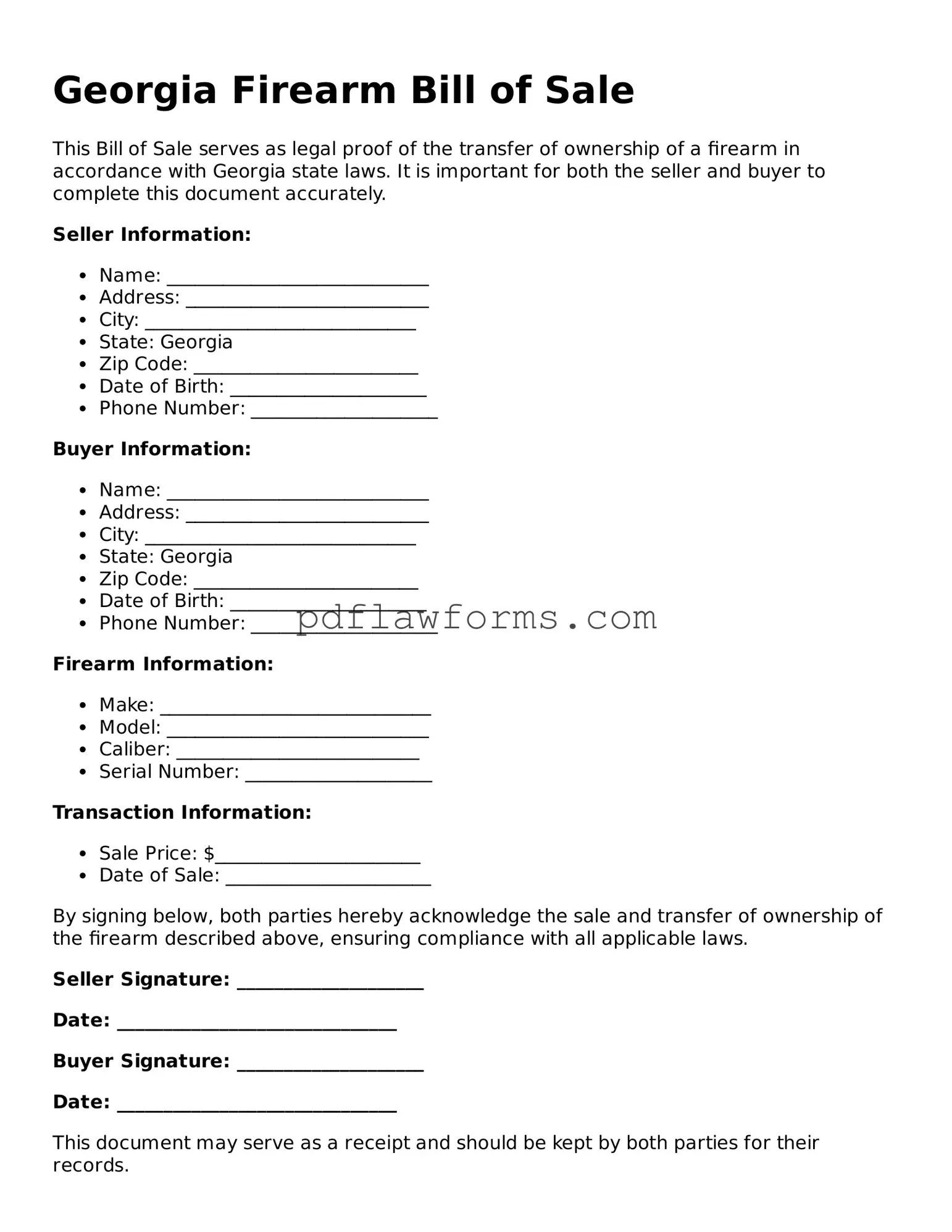Firearm Bill of Sale Form for the State of Georgia
The Georgia Firearm Bill of Sale form is a legal document used to record the sale or transfer of a firearm between parties in Georgia. This form ensures that both the buyer and seller have a clear understanding of the transaction, providing necessary details like the firearm's description and the identities of the involved parties. To facilitate a smooth transaction, it's essential to fill out this form accurately; you can do so by clicking the button below.
Make My Document Online

Firearm Bill of Sale Form for the State of Georgia
Make My Document Online
You’re halfway through — finish the form
Edit and complete Firearm Bill of Sale online, then download your file.
Make My Document Online
or
⇩ Firearm Bill of Sale PDF
